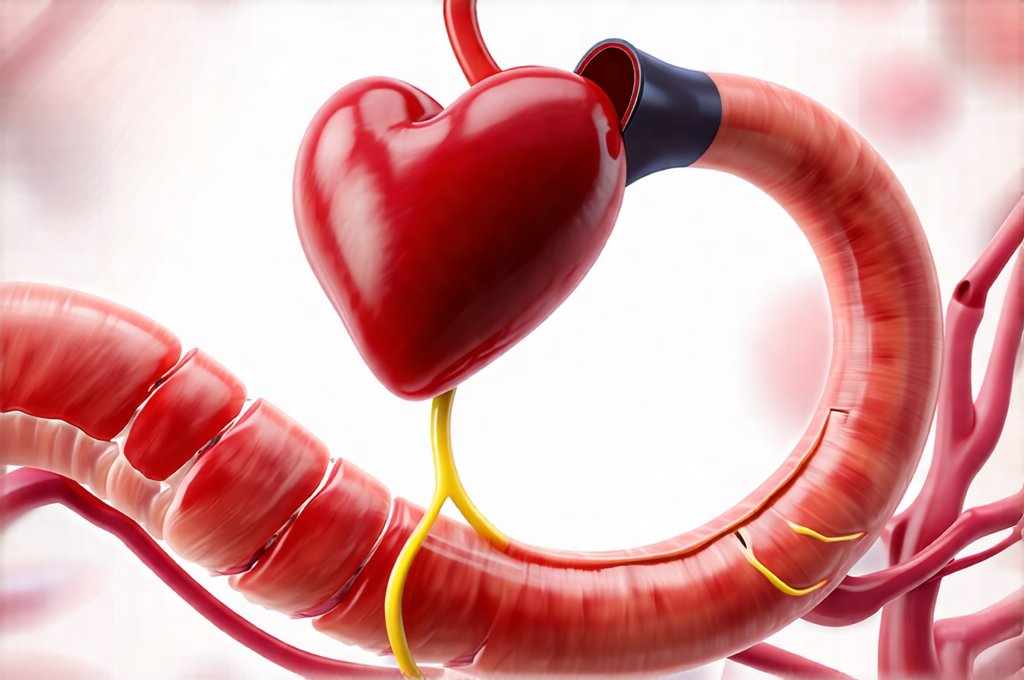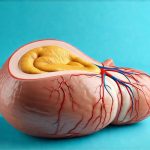Heartburn, that burning sensation in your chest after eating, is an incredibly common experience. For many, it’s an occasional nuisance, easily managed with over-the-counter remedies. But for others, it’s a frequent and debilitating condition that significantly impacts their quality of life. The good news is you don’t necessarily need drastic measures or medication to gain control. Often, relatively small changes to your daily habits can yield substantial improvements in managing heartburn symptoms and preventing them from occurring in the first place. Understanding the root causes – often related to diet, lifestyle choices, and even body positioning – is the first step towards a more comfortable existence. This isn’t about deprivation or strict rules; it’s about making informed adjustments that work with your body, not against it.
Many people assume heartburn is solely a digestive problem, but it’s often interconnected with other aspects of our lives. Stress levels, sleep patterns, and even clothing choices can all play a role. While acid reflux disease (GERD) requires medical attention, frequent but mild heartburn symptoms are frequently responsive to lifestyle modifications. This article will explore practical, actionable steps you can take to minimize heartburn without drastically altering your life. We’ll focus on changes that are sustainable in the long term and empower you to understand how different aspects of your day-to-day routine contribute to – or alleviate – this common ailment. It’s about regaining control and feeling comfortable again.
Dietary Adjustments for Heartburn Relief
Diet is arguably the most significant factor influencing heartburn symptoms. What we eat, when we eat, and how we eat can all have a profound impact on acid reflux. Certain foods are known triggers for many people, though individual sensitivities vary widely. The key isn’t necessarily eliminating entire food groups (unless advised by a healthcare professional), but rather being mindful of portion sizes, timing, and potential irritants. Common culprits include:
- Spicy foods
- Fatty or fried foods
- Citrus fruits and juices
- Chocolate
- Caffeine
- Carbonated beverages
- Tomatoes and tomato-based products
- Mint (surprisingly, for some people!)
However, it’s crucial to identify your specific triggers through careful observation. Keeping a food diary can be incredibly helpful in pinpointing which foods consistently exacerbate your symptoms. Beyond what you eat, the manner of eating matters too. Eating large meals, especially quickly, puts increased pressure on the lower esophageal sphincter (LES) – the muscle that prevents stomach acid from flowing back up into the esophagus. Aim for small meals more frequent meals throughout the day rather than three large ones.
Furthermore, pay attention to how you eat. Chewing your food thoroughly aids digestion and reduces the workload on your stomach. Avoid eating right before bed; give your body at least two to three hours to digest before lying down. Consider incorporating foods that can naturally help soothe the digestive system, such as ginger or oatmeal (although individual responses vary). Hydration is also important—water helps dilute stomach acid. Prioritizing mindful eating habits can significantly reduce heartburn frequency and severity.
Optimizing Meal Timing & Portion Control
The timing of your meals throughout the day directly impacts how well your body digests food and manages acid production. As mentioned earlier, avoiding large meals is paramount. Think about spreading your calorie intake across several smaller portions instead of concentrating it in three big sittings. This minimizes pressure on the LES and reduces the likelihood of reflux. A simple strategy is to aim for five or six small meals or snacks throughout the day, rather than three large ones.
Beyond portion size, consider when you eat relative to activity. Avoid strenuous exercise immediately after eating, as this can exacerbate reflux. Similarly, avoid lying down within a few hours of your last meal. Gravity plays a vital role in keeping stomach acid where it belongs! If you’re prone to nighttime heartburn, elevate the head of your bed by 6-8 inches using blocks or a wedge pillow. This uses gravity to help prevent acid from flowing upwards while you sleep.
Finally, don’t underestimate the power of pacing yourself during meals. Eating quickly often leads to swallowing more air, which can increase pressure in the stomach and contribute to reflux. Slow down, savor your food, and chew thoroughly. Taking a break between bites can also encourage mindful eating and prevent overeating. Consistency with meal timing and portion control is key for long-term heartburn management.
The Role of Hydration & Specific Beverages
Staying adequately hydrated is crucial for overall health, including digestive health. Water helps dilute stomach acid and aids in the efficient movement of food through the digestive tract. However, what you drink matters just as much as how much. While water is ideal, certain beverages can trigger or worsen heartburn symptoms.
Carbonated drinks are notorious culprits due to the gas they introduce into the stomach, increasing pressure and potentially forcing acid upwards. Similarly, caffeinated beverages—coffee, tea, soda—can relax the LES, making reflux more likely. Alcohol also has a similar effect and should be consumed in moderation, if at all. Citrus juices, while seemingly healthy, can irritate the esophageal lining for some individuals.
Conversely, certain beverages may offer relief. Herbal teas, like chamomile or ginger, are known for their soothing properties (though always check for potential interactions with medications). Almond milk has been reported to help neutralize stomach acid by some people, though this is anecdotal and doesn’t replace medical advice. Finding the right balance of hydration and beverage choices can significantly impact your heartburn experience. Remember that everyone reacts differently; pay attention to how specific drinks affect you.
Identifying Your Personal Triggers Through Food Diary
As previously mentioned, pinpointing your personal triggers is arguably the most impactful step you can take toward managing heartburn. General guidelines are helpful, but individual sensitivities vary greatly. A food diary allows you to track what you eat, when you eat it, and how you feel afterward, helping you identify patterns between specific foods or beverages and your heartburn symptoms.
Here’s how to effectively keep a food diary:
- Record everything: Include all foods, drinks, snacks, and even small bites. Be precise about portion sizes.
- Note the time: Record when you consumed each item.
- Track your symptoms: Describe any heartburn symptoms (burning sensation, regurgitation, etc.) along with their severity (mild, moderate, severe) and timing relative to your meals.
- Include other factors: Note stress levels, sleep patterns, and physical activity as these can also influence heartburn.
- Review regularly: After a week or two, analyze the diary for recurring patterns. Are there specific foods that consistently trigger symptoms? Do symptoms worsen after certain activities?
This process requires diligence, but the insights you gain are invaluable. It empowers you to make informed dietary choices tailored to your individual needs and sensitivities. A well-maintained food diary is a powerful tool for understanding and managing heartburn. Furthermore, if diet restrictions are part of your plan, ensure you’re getting enough nutrients to stay healthy. Understanding how stress impacts digestion, especially in children, can also provide a broader perspective on overall gut health: stress and digestion. If you’re looking for ways to improve your overall gut health beyond dietary changes, consider how to track progress on a healing plan or eat gut friendly even with a busy lifestyle, and learn how to maintain variety.


















